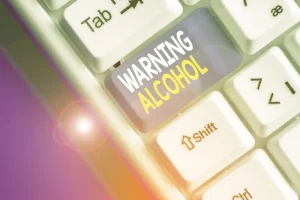
This enables the person to stay in denial, even as the consequences of their drinking become more severe and noticeable. When someone with a substance use or alcohol use disorder is in denial, it doesn’t mean they can’t see the way they’re using alcohol and drugs. They may instead see the drugs and alcohol as an escape from their problems. An important first step in addressing addiction is to recognize and accept how alcohol and substance use is impacting your life. But if you’re in denial about whether your alcohol and substance use is actually unhealthy and causing you problems, it can prevent you from getting help.
The Role of Support Groups
- Try to think objectively about the little and big ways alcohol or drugs play a role in your life.
- If you’ve been covering up for your loved one and not talking about their addiction openly for a long time, it may seem daunting to reach out for help.
- Another interesting finding related to the overall differences across generations regarding the specific criteria items endorsed by AUD probands and AUD offspring in the first data columns of Tables 1 and and3.3.
- This all-in-one virtual library provides psychiatrists and mental health professionals with key resources for diagnosis, treatment, research, and professional development.
- The key aspect of the tolerance question used here might be the emphasis on the recent five-year period.
Any level of denial can also make it difficult for a person to seek or become willing to receive help for their substance use disorder. This guide will examine the concept of denial, explore some common signs and alcoholism and denial symptoms of denial to look out for, and learn how to help someone who is in denial about their addiction. In some cases, it may be necessary to seek professional intervention to help an alcoholic in denial.
Lifestyle and home remedies

It’s important for you and others involved in helping your loved one to understand and view alcohol use disorder as a long-term health condition, just like you do high blood pressure or diabetes. But not everyone living with alcohol use disorder experiences the same level of denial, if they experience it at all. Your loved one may be aware of some of the effects of alcohol use, but not of others. If your loved one is in denial or doesn’t want to seek treatment, they’re not alone.
Empathetic Understanding
According to the 2019 National Survey on Drug Use and Health,about 14.5 million people have an AUD, and yet only 7% received treatment that year. In short, “there’s not a single image of AUD,” points out Sabrina Spotorno, a clinical social worker and alcoholism and substance abuse counselor at Monument. There may be very little you can do to help someone with AUD until they are ready to get help, but you can stop letting someone’s drinking problem dominate your thoughts and your life.

Don’t Take It Personally
You just happen to love someone who is probably going to need professional treatment to get healthy again. American Addiction Centers (AAC) is committed to delivering original, truthful, accurate, unbiased, and medically current information. We strive to create content that is clear, concise, and easy to understand. The longer they refuse to admit a problem, the more it is that they’ll keep drinking.
A diagnosis often brings relief, but it can also come with as many questions as answers. Timmen L. Cermak, MD, is a psychiatrist who specializes in addiction medicine. He is the author of numerous books, including From Bud to Brain and Marijuana on My Mind.

If you’ve been covering up for your loved one and not talking about their addiction openly for a long time, it may seem daunting to reach out for help. However, it’s important to make sure you’re getting the support you need as well. Lean on the people around you, and, if you need to, reach out to https://ecosoberhouse.com/ a mental health professional to speak about your stress and what you’re going through. If you’re close with someone who has alcohol use disorder (AUD), it can be difficult to know what to do to minimize conflict and stress, support your loved one, and tend to your own needs at the same time.
Understanding Alcoholic Denial

PsychiatryOnline subscription options offer access to the DSM-5-TR® library, books, journals, CME, and patient resources. This all-in-one virtual library provides psychiatrists and mental health professionals with key resources for diagnosis, treatment, research, and professional development. Boca Recovery Center is here to provide the best quality care in the treatment of drug and alcohol addiction. People with severe AUD may be ready to enter treatment as soon as you open the conversation. Choosing a treatment provider for AUD together and agreeing to support the person throughout treatment could reduce their denial and encourage them to stop drinking. Self-awareness isn’t easy for everyone, and alcohol makes things worse.
Third, the global question of how individuals view their drinking pattern was developed for this study and has not been formally evaluated for reliability and validity. The current analyses focus on inaccurate denial of current AUDs in individuals who report themselves as light or moderate social drinkers. To prepare for the study we searched the literature for specific characteristics of individuals who evidence denial. These concepts are complex and likely to develop in response to widely held societal beliefs as well as mechanisms reflecting an individual’s traits regarding how they handle problems and their specific beliefs and behaviors.

